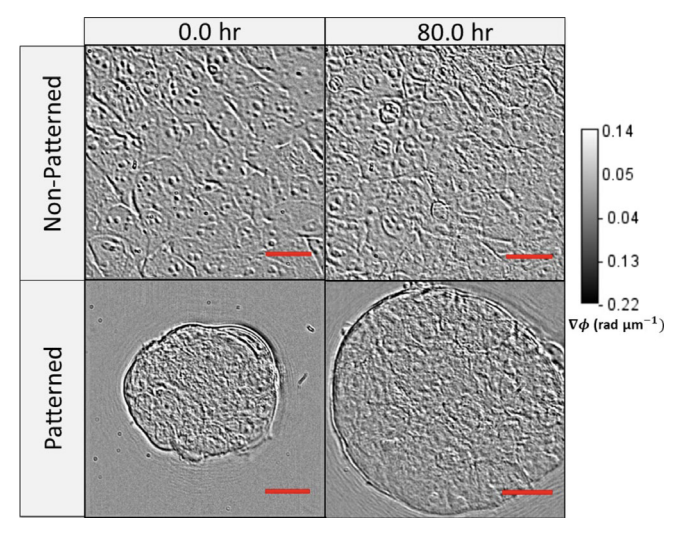EFFECTS OF SUBSTRATE PATTERNING ON CELLULAR SPHEROID GROWTH AND DYNAMICS MEASURED BY GRADIENT LIGHT INTERFERENCE MICROSCOPY (GLIM)
Michael J. Fanous1,2 | Yanfen Li1,3 | Mikhail E. Kandel2 | Amr A. Abdeen4 | Kristopher A. Kilian1,5,6 | Gabriel Popescu1,2*
Journal of BioPhotonics, Vol 12, Issue 12 2019
![]()

The development of three‐dimensional (3D) cellular architectures during development and pathological processes involves intricate migratory patterns that are modulated by genetics and the surrounding microenvironment. The substrate composition of cell cultures has been demonstrated to influence growth, proliferation and migration in 2D. Here, we study the growth and dynamics of mouse embryonic fibroblast cultures patterned in a tissue sheet which then exhibits 3D growth. Using gradient light interference microscopy (GLIM), a label‐free quantitative phase imaging approach, we explored the influence of geometry on cell growth patterns and rotational dynamics. We apply, for the first time to our knowledge, dispersion‐relation phase spectroscopy (DPS) in polar coordinates to generate the radial and rotational cell mass‐transport. Our data show that cells cultured on engineered substrates undergo rotational transport in a radially independent manner and exhibit faster vertical growth than the control, unpatterned cells. The use of GLIM and polar DPS provides a novel quantitative approach to studying the effects of spatially patterned substrates on cell motility and growth.
